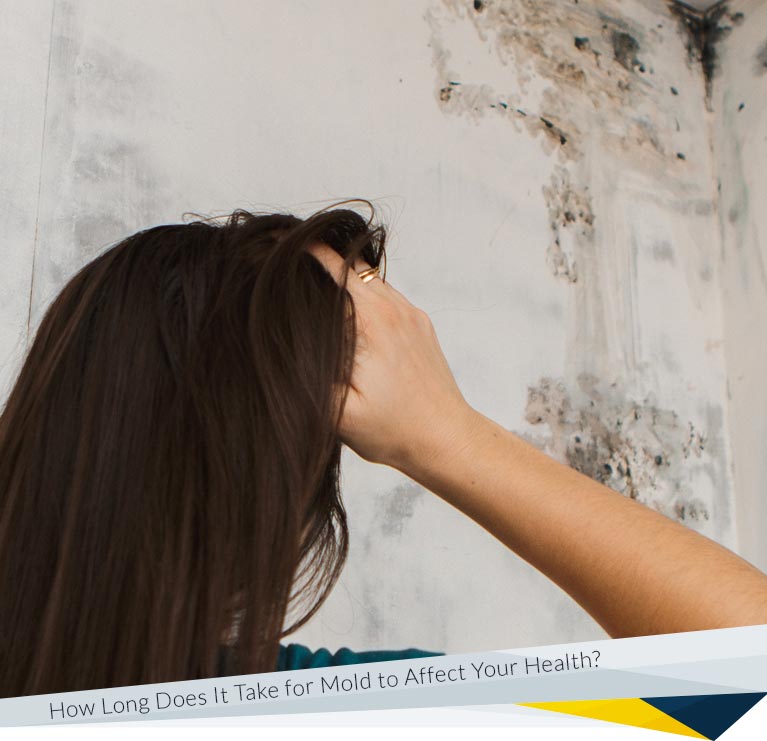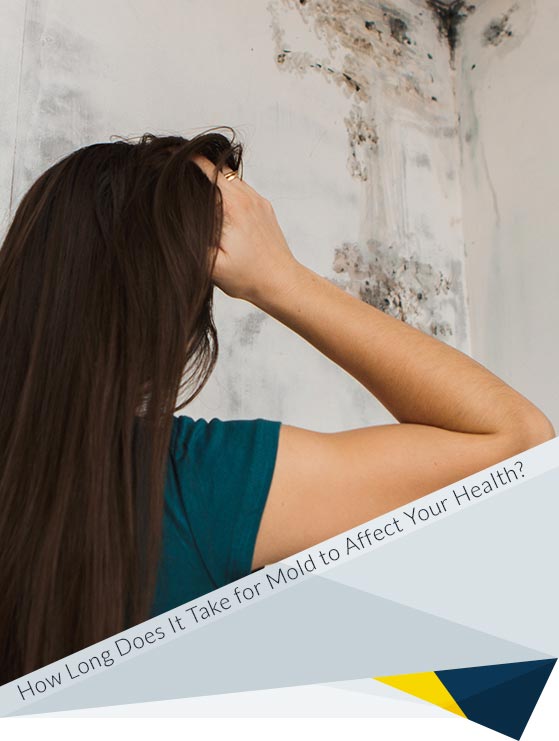
Usually, mold poses no significant threat, though intense exposure can induce symptoms resembling common cold symptoms. In specific individuals, mold can also provoke allergic or asthmatic reactions. Molds are diminutive fungi that proliferate extensively in both outdoor and indoor environments. They form a natural component of our surroundings and thrive in moist conditions.
Mold spreads by releasing tiny particles called spores, and breathing in them can make you worry about your health. If you're concerned about how mold affects you, let's know how fast symptoms can appear after being around it. But here's the thing - no one answer fits everyone. When you might start feeling sick depends on lots of things, like where you live and how healthy you are overall.

When exposed to mold just once, how soon you feel symptoms can differ for each person. People don't all react the same way to mold, and how quickly you start feeling sick is influenced by how sensitive you are to mold.
The immune system treats specific mold spores as allergens for those with a mold allergy, leading to immediate or delayed symptoms like sneezing or nasal congestion upon exposure. Even if you don't have a mold allergy, a one-time exposure may still trigger symptoms in some individuals.
The amount of mold present is another factor that affects symptom onset. Mold, the mysterious character in our health tale, tends to play a bit of a wild card. The more mold in the story, the quicker it can stir some health-related drama. But, here's the twist - the impact of this moldy character is a bit of a solo act, putting on a different performance for each person. Duration of Exposure: Now, let's talk about time on the stage.
The duration of exposure also plays a role in symptom development. Longer exposure to mold increases the number of spores inhaled and overall exposure, potentially leading to faster symptom onset. Short exposures of a few seconds or minutes may not produce noticeable symptoms.
Proximity to mold also matters. Direct contact with mold can result in quicker symptom development. Individuals allergic or sensitive to mold must avoid direct contact as much as possible. It should be noted that the timing of symptoms from one-time mold exposure can vary greatly from person to person. Additionally, prolonged or repeated mold exposure can lead to more persistent or chronic health effects. Should you have concerns about mold exposure and its potential health effects, consultation with a healthcare professional is highly recommended.
The repercussions of brief exposure to mold can vary significantly from one person to another. Those who are allergy-prone or sensitive to mold are usually more susceptible to intense symptoms. Typically, the symptoms encompass:
Black mold, scientifically known as Stachybotrys atra, has been linked to serious health risks, with claims in the 1990s suggesting a connection to infant deaths. It earned the ominous title of "toxic black mold," often associated with the "sick building syndrome."
However, there's insufficient evidence to conclusively label black mold as inherently lethal. In general, both black mold and mold are not considered fatal. Nevertheless, black mold may trigger undesirable health reactions, especially in individuals sensitive to mold, such as the young, elderly, or those with weakened immune systems.
Choosing a professional mold remediation company offers several advantages over attempting to handle mold issues on your own.
FDP Mold Remediation of Baltimore has certified teams serving throughout Baltimore County. We are readily available to work on your property should someone be experiencing negative health affects.
Our team doesn't settle for products that merely mask mold issues. We use superior-quality products designed to genuinely eliminate mold, preventing a recurring problem down the line.
We ensure our solutions get rid of mold and tackle any stains that come with it. What makes us different is that we work to stop mold from returning.
We like to keep things open and honest. Our main goal is to quickly and affordably solve your mold issues without risky shortcuts.
Being on time and respecting you and your home is really important to us. We understand that waiting around for services can be frustrating, and we promise to be on time and treat your home just like ours. We don't just deal with the mold you see now; we also work to stop it from coming back. Call now 877-421-2614



